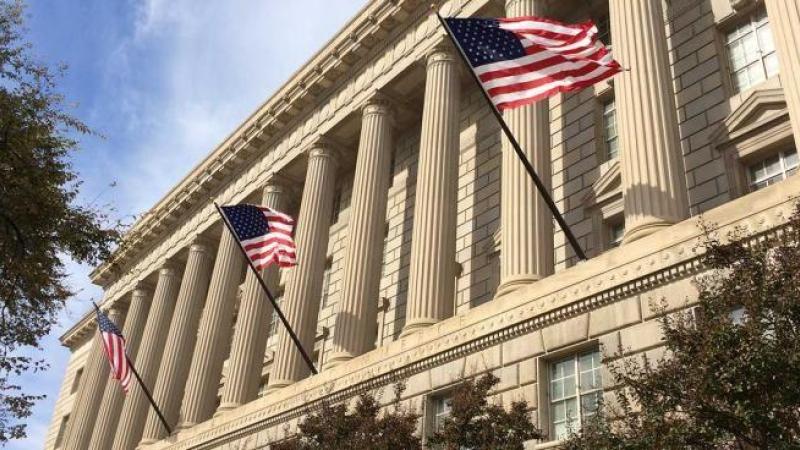Republican AGs press BlackRock on ESG activism as firm admits risks
ESG practices have come under scrutiny from conservatives over concerns that they may present a conflict of interest and constitute the breach of a firm's fiduciary duty to its investors.
A group of Republican attorneys general this week demanded that BlackRock account for its environmental, social, and corporate governance (ESG) practices after its decision leave a climate bloc.
"Our investigation also seeks to better understand how you as independent directors oversee and address potential conflicts of interest," the group, led by Montana GOP Attorney General Austin Knudsen, wrote to the BlackRock fund directors. "BlackRock has made commitments to environmental activist groups that may conflict with the fiduciary duties it owes to clients, and we seek more information about how the independent directors have overseen this."
"Further, BlackRock’s relationships with certain large institutional clients, especially state pension funds, may unduly influence BlackRock’s overall approach to engaging with companies in which it invests, including investments that have disclaimed any reliance or focus on ESG factors," they continued. "We seek more information on whether and how BlackRock’s business interest in keeping these large institutional investors as clients conflicts with its fiduciary duties to manage funds solely for the financial benefit of investors, as well as disclosures BlackRock may have made to the independent directors about these issues and any other oversight provided by the independent directors."
Earlier this month, BlackRock confirmed it would drop its corporate membership in Climate Action 100+, a voluntary coalition of institutions that pushes investors to use their financial leverage to advocate for climate policies within firms. BlackRock international, a subsidiary of firm, remained a member. The overall firm did, however, retain its membership in other climate groups.
ESG practices have come under scrutiny from conservatives over concerns that they may present a conflict of interest and constitute the breach of a firm's fiduciary duty to its investors. BlackRock, in a recent 10-K filing with the U.S. Securities and Exchange Commission, admitted that its pursuit of ESG-related policies presents risk to the bottom line.
"BlackRock may also communicate certain initiatives and goals for its corporate activities related to environmental, diversity, and other ESG-related matters. BlackRock could be criticized for the scope or nature of any initiatives or goals, or for revisions thereto," the filing read. "Such initiatives or goals may be difficult or costly to implement, may not advance at the anticipated pace, or be accomplished within the announced timeframe or at all."
"If BlackRock is not able to successfully manage ESG-related expectations across varied stakeholder interests, it may adversely affect BlackRock’s reputation, ability to attract and retain clients, employees, shareholders and business partners or result in litigation, legal or governmental action, which may cause its AUM, revenue and earnings to decline," it warned.
In December of last year, Tennessee Republican Attorney General Jonathan Skrmetti sued the company, contending that its " inconsistent statements about its investment strategies deprived consumers of the ability to make an informed choice."
"Some public statements show a company that focuses exclusively on return on investment, others show a company that gives special consideration to environmental factors. Ultimately, I want to make certain that corporations, no matter their size, treat Tennessee consumers fairly and honestly," he said at the time.
Ben Whedon is an editor and reporter for Just the News. Follow him on X, formerly Twitter.
















